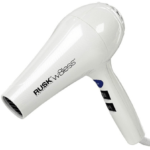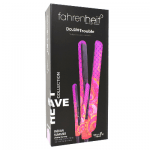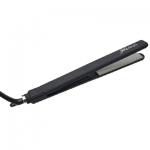Dairy is the talk about the past few years, it seems like. With so many alternatives out there, so many preaching how bad dairy is for your body, and vegans pushing the message even harder, there’s a lot to take in. As I’m sure you remember, dairy was forced on us from a very young age growing up. Every kid had to grab milk at school for lunch, the Got Milk ads were all the rage, and every parent said you needed it to keep your bones strong. Was any of it true? Specifically, does dairy have more downsides than upsides?
Today, we are going to talk about one specific aspect of the side effects of dairy. Is dairy bad for your skin? There is a lot to unpack to get the true answer to this question, so let’s get to it.
The largest claims that beauty gurus and celebrities push against dairy is the increase of oil and acne breakouts from dairy. Due to this, many have cut dairy out of their diet completely. However, those same people spend loads of time and treatment working to keep their skin looking flawless. Today, I’m going to research the real data of the effects of dairy on skin, so you don’t have to!

Show us the Data
While all dairy comes from cows, there have been some studies that differentiate the type of dairy and the results based on that specific type. The American Academy of Dermatology did a study on the event of milk alone and correlated that milk causes a 44% higher chance of acne breakouts. That’s a pretty significant jump.
The reason for this is that milk affects your hormone balance. If you are familiar with skin care in the slightest, then you know a hormonal imbalance is asking for disaster. To be expected, they found that this causes significant breakouts. They found that it causes an overproduction of oil and raised testosterone levels causing these breakouts.
Another study showed that 50% of people with acne regularly consumed dairy. While this is not as concrete of a fact, it is something to take into consideration for the full picture. It also connected sugar to acne outbreaks which has been much more commonly accepted as an outbreak cause. It is important to note that without any added sugar, there is sugar in dairy which could be another reason for the correlation.
So, believe or not, the beauty gurus and celebrities were right. Cutting out dairy significantly increases your odds of less breakouts and clearer skin. Like always, you still have to maintain a good skincare routine to keep your natural breakouts in check.
Dairy Alternatives
Like I mentioned, there are loads of dairy alternatives on the market now. While these are great options to help lower your negative impact on the environment and harsh treatment of cows, are these better for your skin?
The most common milk alternatives are oat milk, almond milk and coconut milk. It only makes sense that if these are high in sugar, they are most likely going to be bad for your skin as well. However, while dairy is high in sugar, it also is bad for your skin due to the hormonal imbalance, so keep this in mind.
So does oat milk cause acne? Almond milk? Coconut milk? The answer is not as clear and concise and a yes or no. If drank in moderation, they are much better for your skin than dairy products. However, they do have sugar in them, so moderation is key to keeping your skin calm and breakout free.
Ways to Combat This
So now what? First things first, try cutting dairy out of your diet and see how it affects your skin. Like any statistic, this is not a guaranteed fix, but hopefully it will be effective for most people. Next, look for a dairy alternative low in sugar. This will likely be oat milk or almond milk.
Keep your use of these dairy alternatives to a minimum. A cup of cereal ever so often. A morning smoothie. Any of these things are fine, just like any other food or drink that has a bit of sugar in it.
Finally, start a skincare routine centered around oily skin and acne breakouts. Look for hyaluronic acid or other options that will help dry out your skin to get back to a balanced skin type. Moisturize well to combat this and ensure to don’t swing too far in the other direction. It’s a bit of a balancing act, but you will begin to see results soon!


